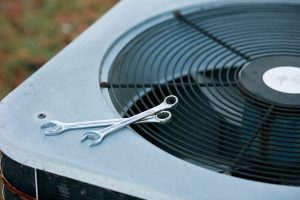As the temperatures rise, the importance of a well-functioning air conditioner becomes paramount. However, there comes a point when every homeowner faces the dilemma: should you continue repairing your aging air conditioner or invest in a new one?
Understanding when to plan for an air conditioner replacement can save you from costly repairs and ensure your home remains cool and comfortable. Here are key signs that indicate your AC may be too old to fix. Just make sure you choose the right HVAC contractor in San Ramon for the job.
1. Frequent Repairs
One of the clearest signs that your air conditioner is nearing the end of its lifespan is the frequency of repairs. If you find yourself calling the technician more often than usual, it might be time to consider a replacement. Frequent breakdowns not only disrupt your comfort but also drain your finances. According to experts, if the cost of repairs approaches 50% of the value of a new unit, investing in a new system is the more economical choice.
2. Rising Energy Bills
An aging air conditioner loses its efficiency over time, resulting in higher energy consumption. If your energy bills are steadily increasing despite consistent usage patterns, your AC might be the culprit. Older units have to work harder to cool your home, leading to higher energy costs. Upgrading to a modern, energy-efficient model can significantly reduce your energy bills and carbon footprint.
3. Inconsistent Cooling
Uneven cooling is a common issue with older air conditioners. If some rooms in your house are too cold while others remain warm, it’s a sign that your AC is struggling. This inconsistency can be due to wear and tear on the system’s components, making it difficult for the unit to distribute air evenly. A new air conditioner can provide uniform cooling, enhancing your comfort.
4. Strange Noises and Odors
Unusual noises and odors coming from your air conditioner are red flags that something is wrong. Grinding, squealing, or banging noises often indicate serious mechanical issues. Similarly, musty or burning smells can signal mold growth or electrical problems. These issues can be costly to fix and may pose health risks. Replacing an old AC with these symptoms can ensure your home remains safe and comfortable.
5. Age of the Unit
The age of your air conditioner is a crucial factor in deciding whether to repair or replace it. Most air conditioners have a lifespan of 10 to 15 years. If your unit is within this age range or older, it’s likely less efficient and more prone to breakdowns. Even with regular maintenance, older units cannot match the performance and efficiency of newer models. Planning for a replacement before your AC fails completely can prevent unexpected discomfort during peak summer months.
6. Refrigerant Type
Older air conditioners often use R-22 refrigerant, which is being phased out due to environmental concerns. As of 2020, R-22 is no longer produced or imported in the United States, making it increasingly expensive and difficult to find. If your AC uses R-22, upgrading to a unit that uses the more environmentally friendly R-410A refrigerant is a smart move. This transition not only benefits the environment but also ensures your system is up to date with current regulations.
Schedule replacement with the professional technicians at Comfy Heating & Air Conditioning Inc.

